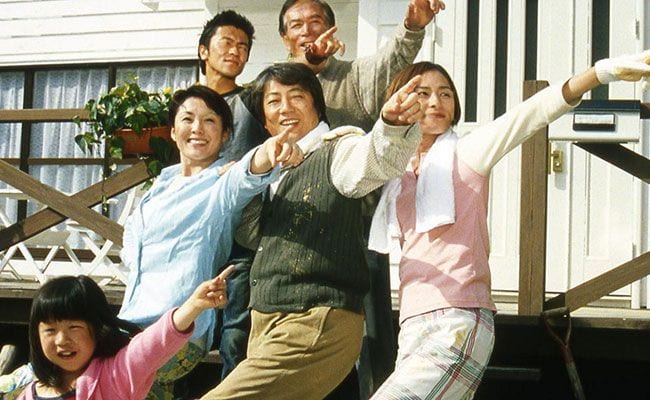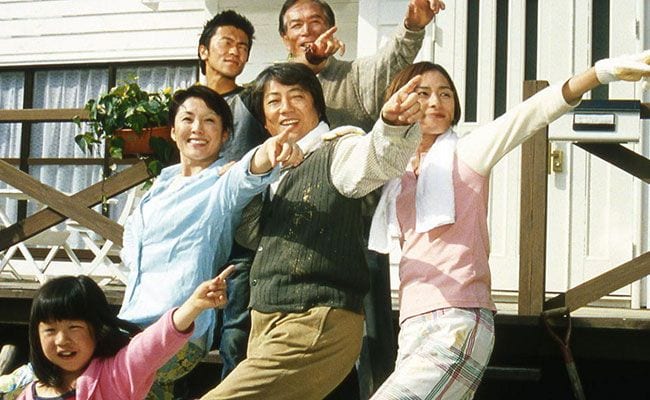
Takashi Miike is probably the most prolific and prominent Japanese filmmaker to emerge in the direct-to-video era. He has a reputation for over-the-top violence, earned chiefly by Ichi the Killer and Audition, but he’s not confined to that; just check out his sentimental The Bird People of China. Though he adopts different styles, one of his visual signatures follows the crime films of Takeshi Kitano in favoring unblinking shots while various activities occur more or less within our sight, thus creating tension between this formal impassivity and the frenetic or horrific content.
Happiness of the Katakuris is one of his oddest movies, and that’s saying something. It doesn’t really have over-the-top violence; instead, it relies on morbid and grotesque humor as it tells the story of an inn where the guests keep dying freakishly, and the family keeps burying them to avoid bad publicity. By the way, it’s a musical. Brilliantly, some of the scenes go into Claymation in order to convey what couldn’t be done as well with special effects. Although I find this movie too long, and the musical numbers not well-staged, it has passages of delightful creativity and conveys an exuberance and joy we don’t often see.

Umberto Eco explained that while the classic temperament says “I love you”, the modernist temperament punches you in the mouth to say “I love you”, and the postmodernist, “As Barbara Cartland would say, I love you”. In all cases, the same emotion is being expressed. With its weird visual resonances to The Sound of Music, this movie is the postmodern way of expressing old-fashioned optimism and resilience, while realizing that the viewer may have seen one too many happy-families-stick-together movies. It’s really the same sentiment tailored to the gonzo hunger of the hip and jaded, and well worth watching at least once.
The Arrow Blu-ray/DVD combo includes an avalanche of extras. Aside from the making-of featurette and cast interviews, there are commentaries by Miike and his biographer Tom Mes, a new Miike interview, a visual essay by Mes on Miike’s themes, and a booklet of informative essays. Arrow could really do us a nice turn with an edition of The Quiet Family, the South Korean film that inspired Miike’s remake, from director Kim Jee-woon, who made A Tale of Two Sisters and I Saw the Devil.


![Call for Papers: All Things Reconsidered [MUSIC] May-August 2024](https://www.popmatters.com/wp-content/uploads/2024/04/all-things-reconsidered-call-music-may-2024-720x380.jpg)



